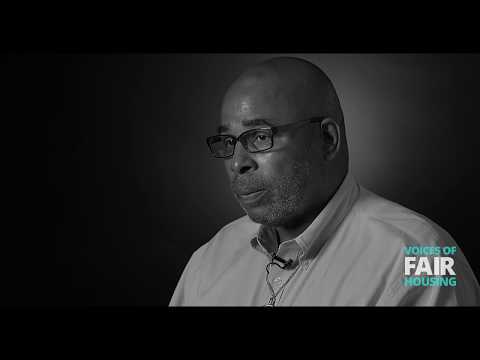The Fair Housing Center for Rights & Research is conducting surveys to learn more about one of the biggest challenges that formerly incarcerated people face: finding housing. And the center wants to hear from landlords too.
“I would love to have a robust set of perspectives from landlords because they play a crucial role in ensuring fair housing outcomes,” said Austin Cummings, senior research associate for the Fair Housing Center. Based in Cleveland, the FHC works to end housing discrimination.
The goal is to gather insights that will help Cuyahoga County improve the housing prospects for formerly incarcerated people, Cummings said. Links to both surveys are posted at the bottom of this article.
Cuyahoga County can help formerly incarcerated people with upfront costs, but affordability isn’t the only issue they face. A 2020 FHC report titled “A Never-Ending Sentence” included results of a survey of landlords. About 80% said they would reject a prospective tenant who’d been convicted of a felony, and more than 50% might deny someone who’d been convicted of a misdemeanor.
“Several [tenant screening policies] explicitly state that the management company has the right to deny an applicant based on subjective criteria such as ‘suitability’ or ‘potential for disruptive behavior,’” the report stated. “The vagueness of these categories creates space for housing providers’ own biases/discretion to influence decisions.”
Early responses to the new survey, which FHC shared with Signal Cleveland without names, indicate that little has changed.
“There is some true pain and defeat in these responses,” Cummings said.
Here are a few of the responses:
• “It was like the movie ‘Groundhog Day.’ It got to a point where I knew what was gonna happen as soon as the person accepting the application looked at the section where it asks have you or ANY family member been convicted of a felony.”
• “I have to ask up front do you do a background check and what are the disqualifying offenses. Ninety-nine percent of them say my felonies will disqualify me from being able to rent from them. … This is a very humbling and hard situation to overcome.”
• “Parents ended buying a second home for me to live in. It was the only option.”
• “I have talked on the phone with agents, toured apartments, and paid application fees all to be turned down for my criminal history. A history that does NOT include arson, sexual assault, drug dealing, or anything else that would impact my ability to be a good tenant.”
(Other respondents also mentioned being required to pay an application fee before being rejected.)
• “It’s damn near impossible.”
So far, FHC has “only a handful” of responses from landlords and property managers, Cummings said.
“The ones I do have generally say they would be more willing to rent to individuals with convictions if they were in rehabilitation programs and job placement programs, knowing they were receiving ongoing counseling, and that [the landlord] would receive rent and their property would be maintained,” Cummings said.
More input from property owners will “expand our understanding of what types of tenant screening mechanisms are being implemented,” Cummings said. “Putting these voices, perspectives, and experiences [of landlords and aspiring tenants] in conversation together hopefully leads to sound policy construction.”
Take the Housing Provider/Landlord Survey
Finding Housing with Criminal Conviction Survey







